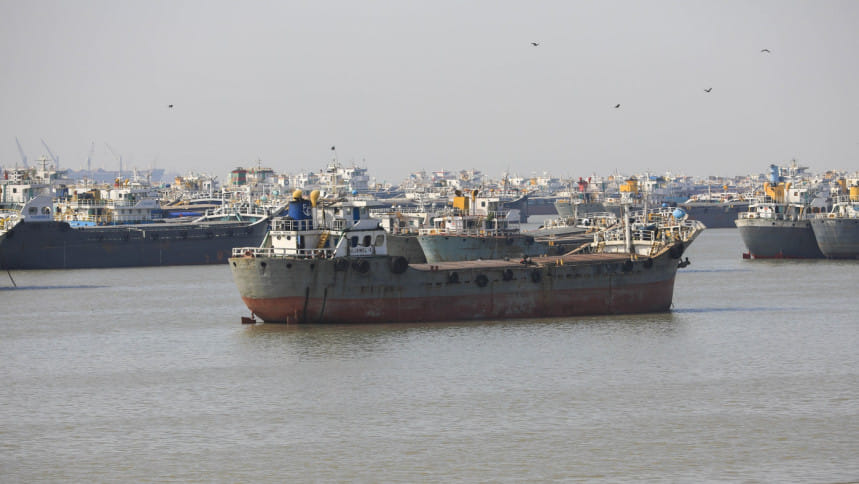Conflict among lighter vessel owners deepens

Leaders of the Inland Vessel Owners Association of Chattogram (IVOAC) yesterday accused a section of leaders of the Bangladesh Cargo Vessel Owners Association (BCVOA) of orchestrating the obstruction of loading, unloading, and transport of goods from the former's allocated vessels.
IVOAC Vice-President Parvez Ahmed alleged at a press conference that its lighter vessels had started being obstructed by miscreants backed by a section of BCVOA leaders the day after a meeting between three vessel owners' platforms held at the DG Shipping office on December 24.
He also alleged that an IVOAC monitoring team was attacked by miscreants when they went to the Shah Cement Ghat area in Mokterpur in Narayanaganj to inspect the situation on Wednesday.
IVOAC President Shafiq Ahmad and General Secretary Azizur Rahman also spoke, lamenting the situation and asking those involved to refrain from such activities.
On December 19, the IVOAC broke away from the Water Transport Cell (WTC), a Chattogram-based private platform comprising three vessel owners' platforms that has been coordinating the renting out of vessels in rotation since 2003.
The IVOAC accused the WTC management of financial irregularities and started operating lighter vessel independently.
Its leaders said they split from the platform after a High Court ruling last year declared a circular issued by the shipping department in 2021 -- which made it mandatory for all lighter vessel owners to obtain serial numbers in line with the WTC's policy -- illegal.
In a meeting on December 24, the decision was taken to form a seven-member committee, comprising two members from each of the three organisations, to identify problems in the existing vessel allocation procedures of the WTC, according to meeting minutes.
The minutes of the meeting stated that cargo transport would continue as before.
IVOAC VP Parvez yesterday said IVOAC had been allocating vessels separately since WTC's vessel allocation procedures had been declared illegal by the High Court.
Contacted, BCVOA General Secretary Nurul Hoque said the High Court did not declare the WTC's operation illegal, but that the order was against a cargo transport policy of the shipping department.
He said IVOAC leaders were misinterpreting the ruling and allocating vessels by disobeying the decision taken at the meeting.
Denying any BCVOA involvement in obstructing IVOAC's cargo transport, Hoque said it was being done by individual vessel owners that have remained unpaid for a long time.

 For all latest news, follow The Daily Star's Google News channel.
For all latest news, follow The Daily Star's Google News channel. 



Comments